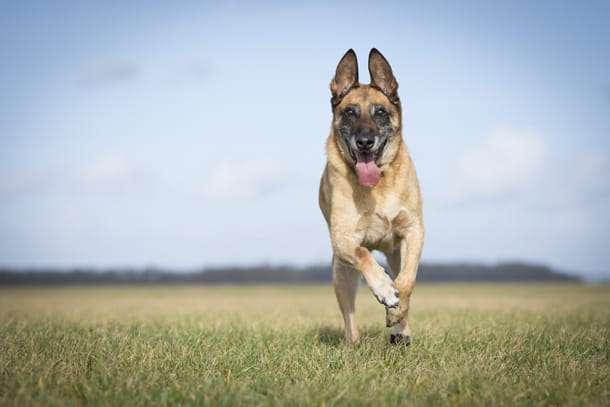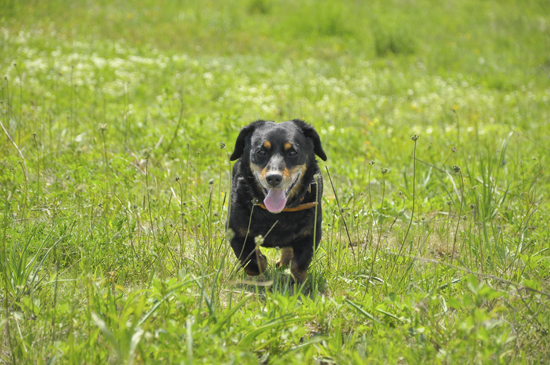EXERCISING SENIOR DOGS?
“Once you are doing exercise regularly, the hardest thing is to stop it.”
- Erin Gray
As dogs age, they can become much more sedentary and won’t show the same energy levels they once did. You may think your dog is happy relaxing all day but it’s important to keep up regular exercise. While your snoozing dog might look pretty content, regular exercise can be one of the best things for your senior dog’s health to prevent a range of health issues. A lack of exercise can make older dogs prone to weight gain and obesity, which can lead to an increased risk of other health issues, such as diabetes or joint problems. Arthritis is a common issue for older dogs but a solid workout can be a good way to stop their joints from further deteriorating and keep them in shape.
It’s important to not overdo exercise, as your older dog doesn’t have the same energy levels as it once did, so be sure to choose a comfortable walking pace for your dog and take them for gentle walks that aren’t too strenuous. It’s also important to be careful and watch for signs of fatigue and trouble breathing, you don’t want to overexert your dog. If you’re considering a change to your dog’s exercise regime, it’s important to take your dog for a check-up, especially if they’ve put on weight or have joint problems.

HOW MUCH EXERCISE IS TOO MUCH?
The level of exercise your older dog requires depends on several factors, like whether they’re used to exercising, if they’ve recently put on weight or have certain health issues. You should be able to tell when your dog has reached their limit and needs a break.
- Excessive panting or drooling can mean your dog is under a lot of stress and is heavily dehydrated. This can happen when the weather is hot, so don’t take your dog out to exercise in the heat.
- Limping or favouring one leg can be a sign to stop as it may mean they are experiencing inflammation or joint pain.
- Coughing can be a sign of heart or airway issues that are often common in senior dogs. Repeated coughing can be distressing for your pet, so if this keeps happening it’s a good idea to check in with your vet.

KEEP IT INTERESTING
To keep your dog interested in exercise, mixing up their usual regime can help. Besides walking, if your older dog can handle a short jog, this can give their joints a solid workout and help maintain muscle tone. Swimming is also great for older dogs as it’s a low impact workout that puts less pressure on their joints, which is good for dogs suffering arthritis.
Exercising your dog is important at any age. As your dog gets older, you should keep adjusting their exercise routine to suit their changing needs. This could mean exercising more or going for gentle walks around the block every second day. It’s important for owners of older dogs to know just how much exercise their pet needs.



